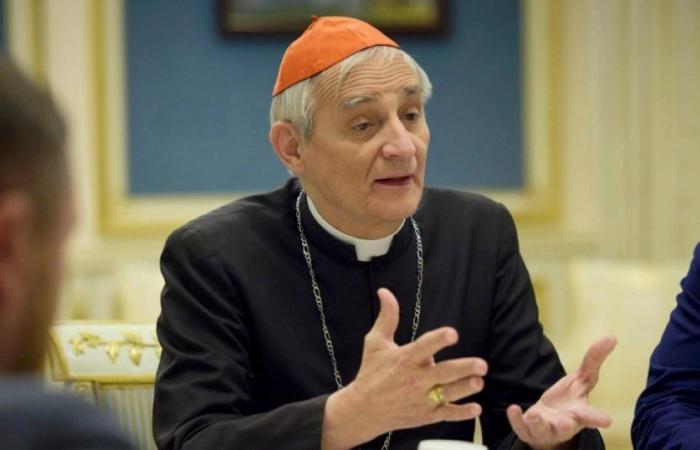
On May 24, the Italian Episcopal Conference was very clear: “Differentiated autonomy risks undermining the principle of solidarity.” Now, after the approval of the law, the president of the bishops, Matteo Zuppi, does not change his position one iota: “We have made an official document, we have said what we had to say, it is clear that […]
TO CONTINUE READING
SUPPORT US
€1 FOR THE FIRST MONTH
Already a subscriber?
KEEP READING
On May 24th Italian Episcopal Conference she was very clear: “Differentiated autonomy risks undermining the principle of solidarity”. Now, after the approval of the law, the president of the bishops, Matteo Soupsdoes not change his position one iota: “We have done a document official, we said what we had to say, it’s clear that they didn’t take us seriously, what should we do?”. A clear, harsh position, a total rejection of the reform desired by the government and not well received by the bishops, such as the one on the premiership: “I responded with a recommendation for everyone and I would reiterate it – said Zuppi – If we want them to last (the reforms ed) must have everyone’s involvement, we all try to do everything possible to ensure that this is the case.” Words, those of the president of the CEI, pronounced on the sidelines of a conference with exponents of the government.
But what had the CEI said on the subject of differentiated autonomy? On May 24, the Italian Episcopal Conference released a statement note approved by the Permanent Episcopal Council on 22 May during the work of the 79th Assembly General: in practice the CEI had collected and made its own the concerns that emerged from the Italian Episcopate. Hence the criticism of the project which in the meantime has become law: “The country will not grow if not together” was the incipit of the text, which then continued with harsh criticism of the executive. “The bill with which the conditions for the activation of differentiated autonomy risks undermining the foundations of that bond of solidarity between the different Regions, which safeguards the principle of unity of the Republic” we read in the note, in which the bishops expressed concern about “any attempt to accentuate the already existing imbalances between territories, between metropolitan and internal areas, between centers and peripheries”. The CEI had also underlined the risk of seeing an increase in inequalities in the education sector healthcare: “This risk – it was written in the press release – cannot be underestimated, particularly in light of the already existing inequalities, especially in the field of health protection, to which a large part of the resources due to the Regions are dedicated and which raises apprehension as it is inadequate for the citizens’ expectations both in terms of the timing and methods of providing services”. For the Italian Episcopal Conference “the developments of the system of autonomies – the construction of which with Louis Sturzoin the last century, has been one of the main contributions of Catholics to the life of the country – they cannot fail to take into account the actual definition of the essential levels of performance relative to civil and social rights which must be guaranteed uniformly throughout the national territory”.
For this reason the bishops asked the politics a sort of agreement, launching “an appeal to the political institutions to sign a ‘social and cultural pact’, to increase mechanisms for development, control and social justice for each and every one.” “The country will not grow if not together”, underlined the CEI, relaunching a statement contained in many documents of recent years. “This belief has accompanied, over the decades, the duty and will of the Church to be present and supportive in every part of Italy, to promote authentic development of the entire country. It’s a fundamental principle of unity and co-responsibility, which invites us to rediscover the authentic sense of the State, of the common home, of a shared project for the future”, read the bishops’ note. Finally, the CEI cited Dad Francis that in Brothers all he underlined: “Universal brotherhood and social friendship within every society are two inseparable and coessential poles. Separating them leads to a deformation and a polarization harmful.”





